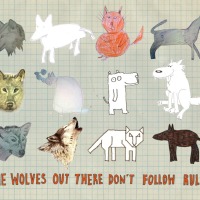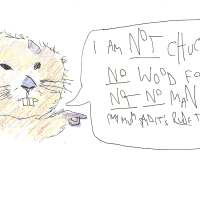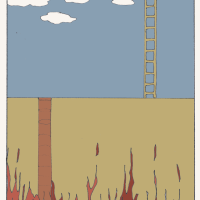I’m kind of tempted to say all of it, but I’m not sure to what extent that helps with a practical decision making process. When I’m deciding which jumper to wear, its hard to quantify the impact it will have on future generations.
It’s a big fault with our society though, short termism. All of our power structures are built with too short goals in mind. Our corporations have to report quarterly, our politicians elected every four or five years, our pay packets come every month, it’s impossible to imagine christmas, let alone a time after christmas.
We start off by forgetting the impacts we have on people alive at the moment if they aren’t within eye line. It’s hard to recognise the economic weight of buying goods that have been imported, sometimes at great height, from the the other side of the world. There’s that example of bottled water, where if you actually include the transport and manufacture costs, the bottle may as well be quarter full of oil. Someone once told me that a kiwi fruit has cost its weight in carbon to get to you.
And that’s only environmental costs, abstracted away from the human costs. You just see cheap clothes, you don’t see the person who has made them, and you aren’t asked to imagine what they earn, or what their life is like.
So we don’t look at the current generation, how are we going to make people look at the future generations?
The fact is, if we were right minded about this, we’d always be working to be aware of the impact we have. Decision making needs to be made on a level where everyone who is impacted by a decision is involved in the process. This isn’t easy. The web of interactions across the world and the future are impossible to comprehend, but we need to find a way to make their weight felt.
In fact, the easiest way to do this, is to just strive towards low impact everything. Buy locally, from people you know. Don’t contribute economically to the making of ‘new things’. Try and bring as much of your infrastructure under your control as possible. Try to not leave a mark.
It’s idealistic, and probably impossible. To try and get everybody to adopt that posture would change the world fundamentally. Possibly in unpredictable ways. Without our global networks, how can we know our impacts? How can we plan to mitigate? How can we redistribute unequal wealth?
We’ve let pandora’s playthings out of the box, we can’t realistically put them back away.
But we need to think seriously, long and hard, about how we’re going to reconnect our impacts and our actions. We need to find a way of re-attaching the costs of what we do, to what we do.
We need to change the way we look at the world.
We need to find a way to see the future.
Not as a floating dream, but as something with weight.
—
Illustration by Jaime










